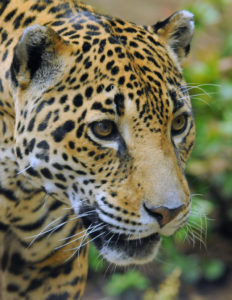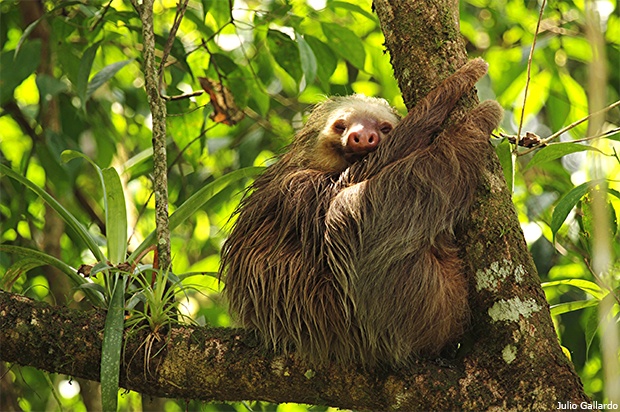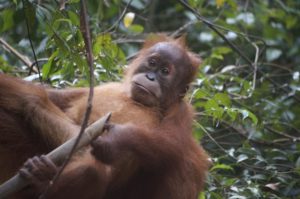We have much more to do and your continued support is needed now more than ever.
Cargill Commits to Save Jaguars and Sloths… In 15 years

In September 2014, Cargill endorsed the New York Declaration on Forests, which was announced at the United Nations Climate Summit in New York City. The broad goal of the Declaration (signed by the National Wildlife Federation and almost 200 other organizations, companies, and governments) is to halve global deforestation by 2020 and eliminate it by 2030. But more immediately, it commits its signatories to “support and help meet the private-sector goal of eliminating deforestation from the production of agricultural commodities such as palm oil, soy, paper and beef products by no later than 2020, recognizing that many companies have even more ambitious targets.” The same declaration commends Cargill for adopting a zero-deforestation palm oil policy earlier that year – a palm oil policy that was “effective immediately”.
Clearly, I was expecting Cargill’s new umbrella policy to bolster this commitment and demonstrate how Cargill would put it into action – but as you may have guessed from my question above, I was sadly mistaken.

Wildlife Cannot Wait
Cargill’s new policy conveniently misinterprets the Declaration’s commitment to eliminate deforestation from supply chains by 2020, instead opting for 2030. Given the rapid and critical declines in wildlife and wildlife habitat, and accelerating climate impacts from deforestation (the world lost an area of forest last year the size of North Dakota!), an additional ten years is simply far too long! Some 125 million hectares of suitable land exists across the tropics, meaning that Cargill has every opportunity to act quickly, easily, and economically – especially given that their main competitors (such as major soy trader Archer Daniels Midland) are already figuring out ways to do it now.
In its Action Plan, Cargill states that it will give priority to tackling illegal deforestation first, and only then turn to address “legal deforestation” – but how long will that take? Can wildlife wait? Do orangutans, jaguars, elephants, and macaws care if the deforestation is legal or illegal if they no longer have a home?

On soy from Brazil, Cargill did the right thing by supporting the extension of the very important Amazon Soy Moratorium. But soy is actually grown in far greater quantities in regions other than the Brazilian Amazon, places like the Brazilian cerrado and Paraguay, where deforestation continues at an extremely high rate. Cargill should live up to its CEO’s commitment by extending the HCV and HCS protections in its palm oil policy to its soybean operations and other commodities as well. After all, as far as jaguars and sloths are concerned, it really doesn’t matter if a forest is being cleared for palm oil or soy or sugar – the important thing is that it’s being cleared.
So what can you do to help wildlife?
 Click to tweet thanking Cargill for releasing their new Forest Policy and encouraging them to eliminate deforestation by 2020 – because wildlife can’t wait!
Click to tweet thanking Cargill for releasing their new Forest Policy and encouraging them to eliminate deforestation by 2020 – because wildlife can’t wait!






















